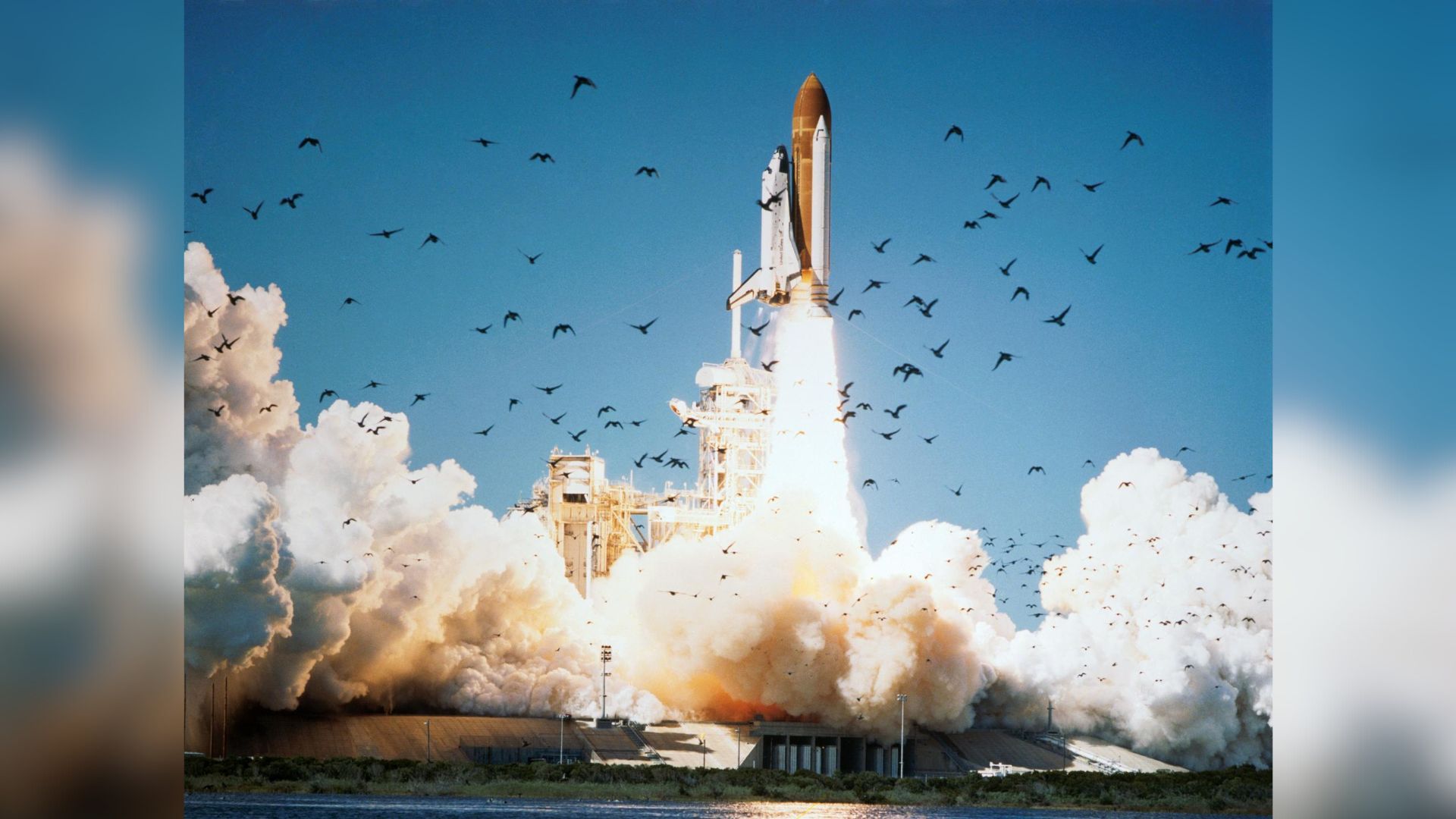Prometheus, ISS Research Cuts Help Pay for Shuttle and Hubble Repair Bills
WASHINGTON --NASA sent Congress a revised spending plan for 2005 that would significantlycut the Project Prometheus nuclear power and propulsion program, cancel a hostof international space station-based biological and physical researchactivities, and postpone some space science missions, including two advancedspace telescopes and a Mars science lander slated tolaunch in 2009.
The cuts werenecessary, according to NASA, to pay the remaining $287 million tab forpreparing the space shuttle for its return to flight, to make a substantialdown payment on a potential Hubble Space Telescope servicing mission, toaccommodate $400 million worth of special projects that lawmakers added toNASA's budget last year, and to cover larger than predicted bills for a varietysatellite projects being prepared for launch.
NASA informedCongress of these intended changes in an updated 2005 Operating Plan sent toCongress May 11. A copy of the operating plan, obtained by Space News,details changes both big and small that NASA says it needs to make to its $16.2billion budget 2005 to get through the end of the fiscal year.
NASA's latestoperating plan includes the full $291 million Congress directed it to spendthis year preparing for a possible Hubble servicing mission. NASA's lastspending plan, sent to Congress in December for review, allocated only $175million of that amount to a Hubble mission. In February, NASA announced, to thechagrin of Hubble-supporters in Congress, that it would abandon any effort tosave Hubble.
Since takingover as NASA administrator last month Mike Griffin has reversed that decisionand ordered engineers at Goddard Space Flight Center to start preparing aHubble servicing mission on the assumption that one will ultimately go forward.A formal decision is expected after the shuttle makes its return to flight.
Griffinexplained his rationale in a May 10 letter accompanying the operating plan,saying that funding return to flight, Hubble servicing, programmatic overrunsand releasing the $400 million in congressional earmarks "has created somedifficult choices" for NASA.
"Given achoice, my preference as Administrator is to eliminate lower-priority programsrather than reducing all programs in the face of budget difficulties, tomaintain efficient execution of the programs which remain," Griffin wrotelawmakers. "Delays and deferrals inevitably lead to increased life cycle costsand erode the overall performance of the Agency's programs. Thus, NASA must setclear priorities to remain within the budget which has been allocated."
Breaking space news, the latest updates on rocket launches, skywatching events and more!
Cut fromNASA's latest operating plan are about $160 million worth of spacestation-based biological and physical research efforts that a recentlycompleted, although unreleased, NASA review concluded were unnecessary in lightof NASA's new focus using the space station for research that directly servesthe needs of its space exploration goals.
While that isbad news for fundamental biological and physical research, some newlyidentified high priority areas of investigation will receive more money in themonths and years ahead, according to Griffin.
"These high-priority areas include space radiation health and shielding, advancedenvironmental control and monitoring, advanced extra-vehicular activities,human health and countermeasures, advanced life support, exploration medicalcare, and space human factors," Griffin wrote."The highest priorities for research on ISS have been identified as medicalresearch with human subjects and microgravity validation of environmentalcontrol and life support technologies. Lower-priority tasks, which are nowsubject to reduced funding, include basic research using model organisms(such as cells or rodents), and fundamental research in physics, materialscience, or basic combustion - with no direct link to explorationrequirements."
NASA alsoplans to refocus Project Prometheus on the development of "space-qualifiednuclear systems to support human and robotic missions" especially those neededto support NASA's near term exploration goals. NASA started the program knownas Prometheus in 2002 to develop nuclear power and propulsion systems for deepspace probes like the Jupiter Icy Moons Orbiter, a flagship-class mission thatNASA deferred indefinitely earlier this year once it became clear that theundertaking would cost tens of billions of dollars and not necessarily helpNASA accomplish its goal of returning to the Moon and sending humans to Mars.
The operatingplan sent to Congress would cut $171 million from the Prometheus budget,leaving the program with $260 million for the time being.
Money for theCrew Exploration Vehicle, meanwhile, would remain untouched at $421.9 millionfor the year, even though NASA has said it intends toaccelerate the program in order to minimize any gap between retiring theshuttle in 2010 and fielding the new system. NASA is still evaluating itsoptions for accelerating the program, but has already announced that it intendsto pick the contractor it wants to build the system in early 2006 instead oflate 2008.
In additionto the cuts and increases, the operating plan also indicates that NASA intendsto take planning for a Hubble servicing mission away from its ExplorationSystems Mission Directorate and give it back to the Science Mission Directorate.Exploration Systems, however, picks up full responsibilityfor NASA's nascent Lunar Robotic Exploration Program and the ISS Crew and CargoServices effort to find alternatives to the space shuttle for delivering cargoand potentially people to the space station. That effort, initiated in2004, had been under the management of the Space Operations MissionDirectorate, which is in charge of the shuttle and station programs.
NASA wouldalso delay the Space Interferometry Mission andTerrestrial Planet Finder, two advanced space telescope projects slated tolaunch some time after the James Webb Space Telescope. Griffin's letter alsosays that NASA is considering delaying the Mars Science Laboratory mission from2009 to 2011. NASA's operating plan cuts nearly $72 million from the program.
Brian Berger is the Editor-in-Chief of SpaceNews, a bi-weekly space industry news magazine, and SpaceNews.com. He joined SpaceNews covering NASA in 1998 and was named Senior Staff Writer in 2004 before becoming Deputy Editor in 2008. Brian's reporting on NASA's 2003 Columbia space shuttle accident and received the Communications Award from the National Space Club Huntsville Chapter in 2019. Brian received a bachelor's degree in magazine production and editing from Ohio University's E.W. Scripps School of Journalism.
